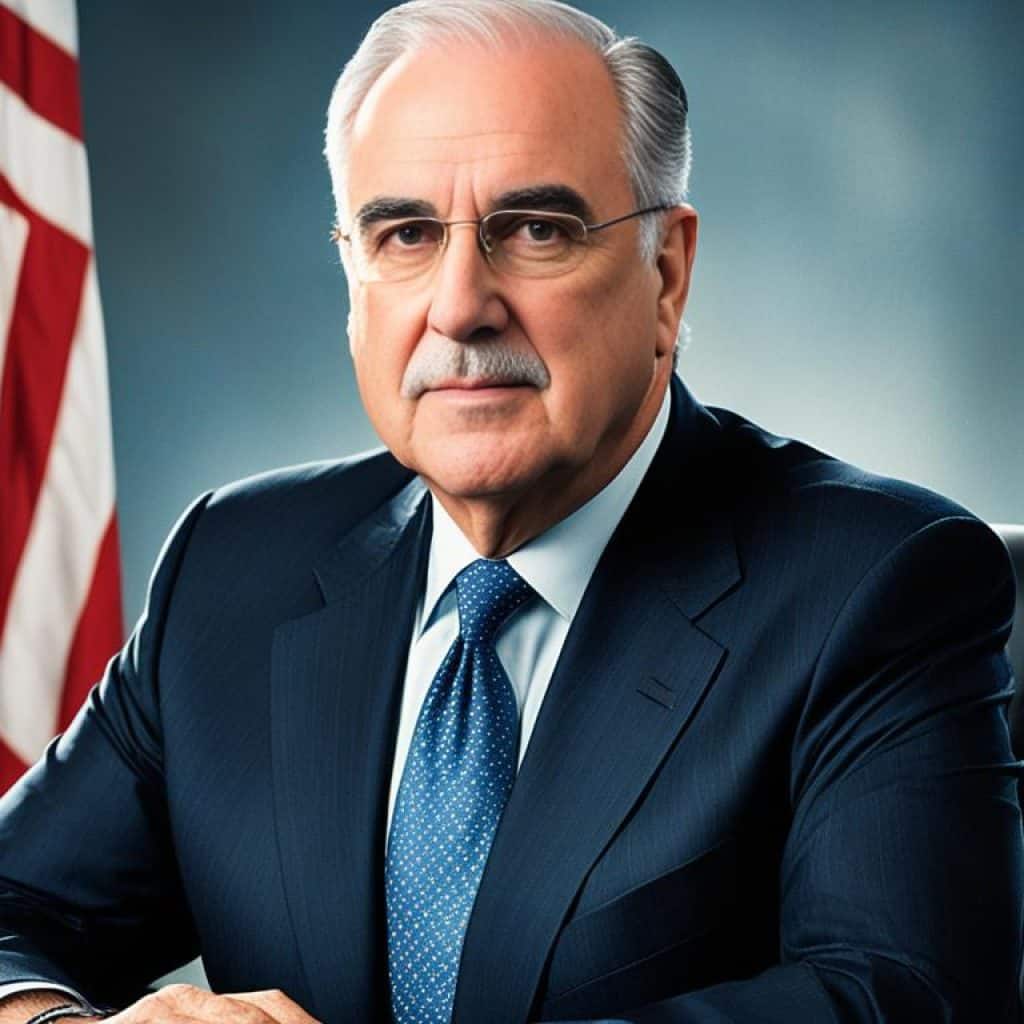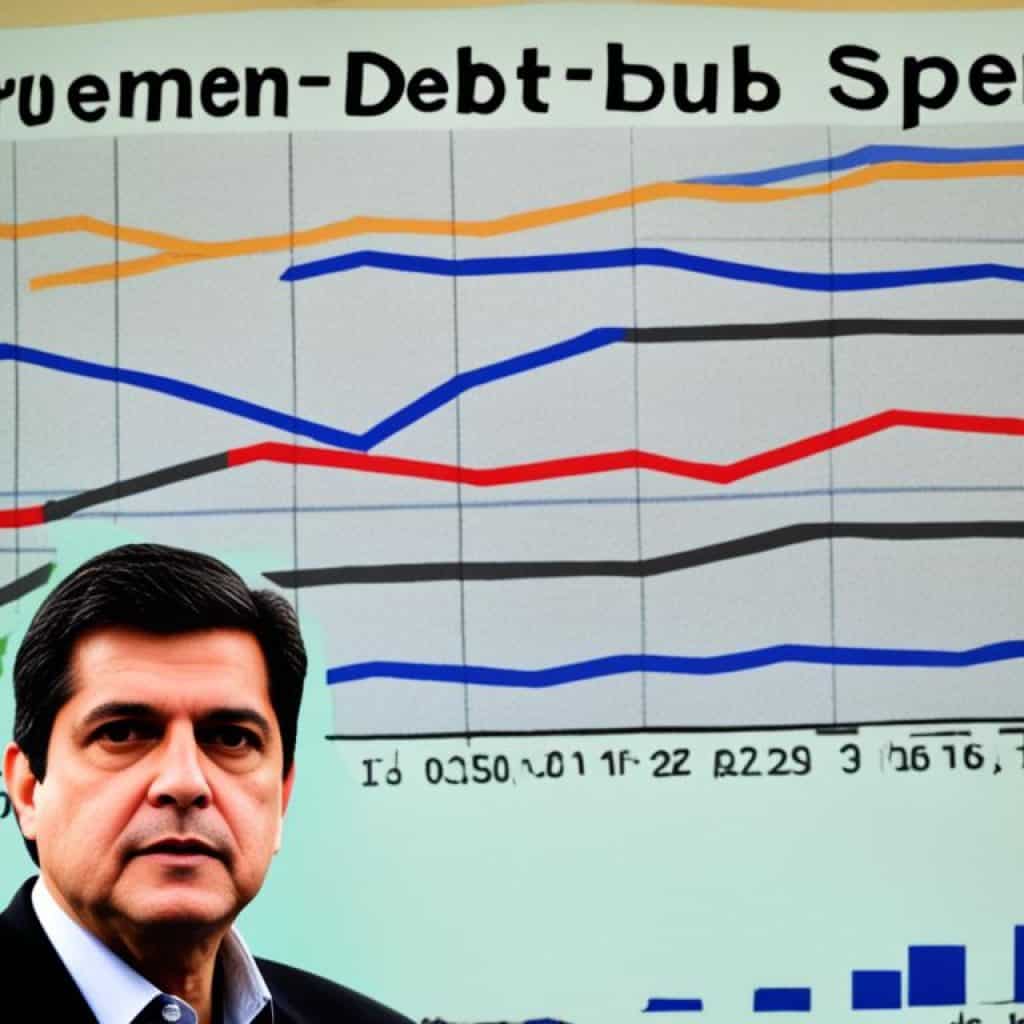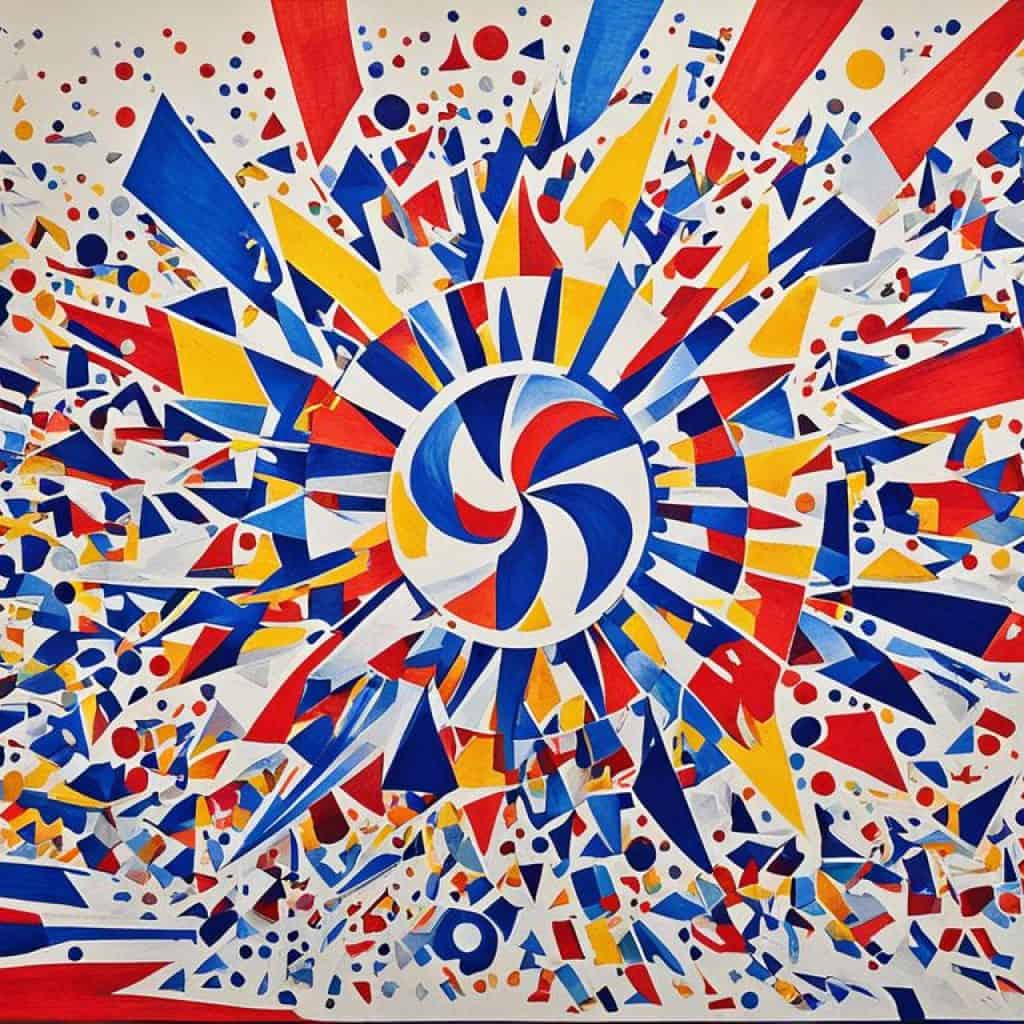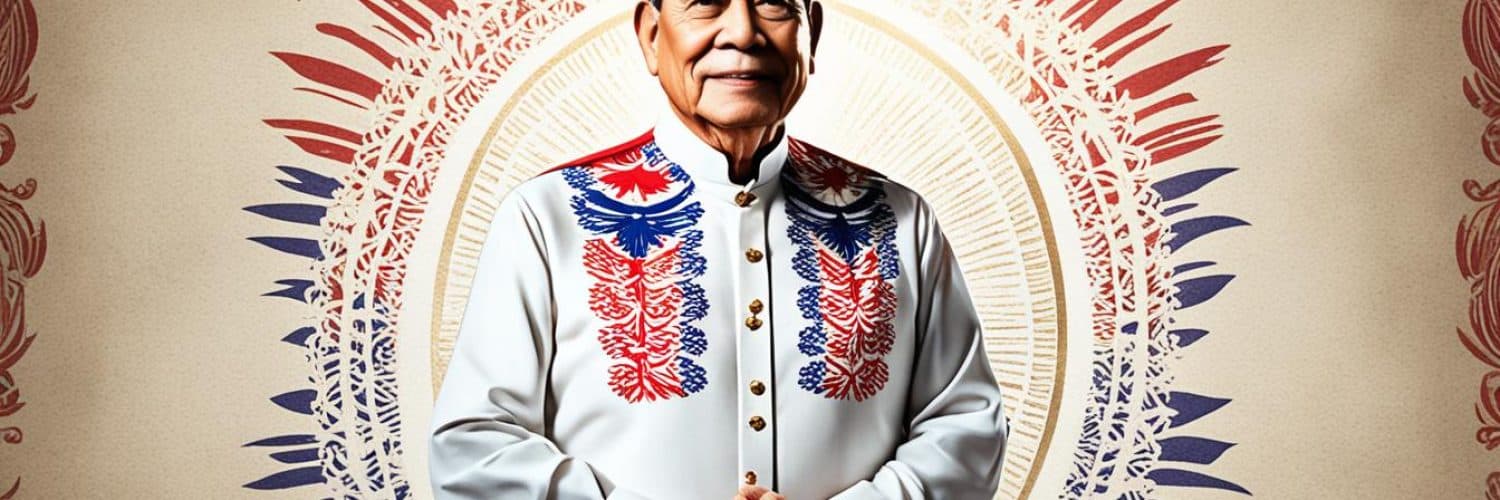Have you ever wondered about the life and achievements of the fourth president of the Philippines? From his political career to his contributions to foreign relations, Carlos P. Garcia shaped the history of the nation during his presidency from 1957 to 1961. Discover the intriguing story of this influential leader and uncover the impact he had on the Philippines. Prepare to be amazed by the key facts surrounding the fourth president of the Philippines.
Key Takeaways:
- Carlos P. Garcia was the fourth president of the Republic of the Philippines.
- Prior to his presidency, Garcia served as the foreign minister and senator.
- He played a crucial role in the resistance movement during World War II.
- Garcia’s presidency was characterized by the Filipino First Policy and his dedication to economic independence.
- His contributions to foreign relations and cultural promotion left a lasting impact on the Philippines.
Early Life and Education
Carlos P. Garcia, the fourth president of the Republic of the Philippines, had a remarkable early life and educational background that shaped his journey towards leadership. Born on November 4, 1896, in Talibon, Philippines, Garcia’s upbringing played a significant role in his future endeavors.
After completing his primary education in his hometown, Garcia pursued higher education in the field of law. He enrolled at Silliman University for his undergraduate studies and later attended the prestigious Philippine Law School. Garcia’s determination and passion for the legal profession led him to excel in his studies and earn a law degree.
In 1923, Garcia’s commitment to excellence was demonstrated when he achieved the highest score in the bar examination. Topping the bar examination solidified his reputation as a knowledgeable and dedicated legal practitioner.
Political Career Before Presidency
Before assuming the presidency, Carlos P. Garcia had a remarkable political career, displaying his dedication and expertise in serving the Filipino people. His journey in politics began as a representative, representing the interests of his constituents. Garcia’s strong leadership and commitment propelled him to higher offices, where he served as the governor of Bohol Province and later as a senator for 13 years.
During his tenure as a senator, Garcia actively participated in various committees, contributing significantly to the development of Philippine policies and legislation. His expertise and insight in Philippine politics earned him respect and admiration among his peers and constituents.
Garcia’s political career laid the groundwork for his future role as the fourth president of the Philippines, where he would continue to make notable contributions to the nation.
| Political Positions | Title | Years of Service |
|---|---|---|
| Representative | Bohol Province | 1933-1941 |
| Governor | Bohol Province | 1947-1953 |
| Senator | Philippines | 1946-1957 |
Role During World War II
Carlos P. Garcia played a crucial role during World War II as a prominent figure in the resistance movement against the Japanese occupation. He was unwavering in his dedication to fighting for the Allied cause and refused to surrender or cooperate with the Japanese government.
“We must stand united and fight for the freedom and independence of our beloved country,” Garcia famously declared during this tumultuous time.
As an active member of the resistance movement, Garcia organized and participated in covert operations against the Japanese forces. His efforts were integral to the success of the resistance and the eventual liberation of the Philippines.
Garcia’s leadership and bravery during World War II earned him the respect and admiration of his fellow countrymen. He became a symbol of resistance and resilience, inspiring others to stand up against oppression.
Carlos P. Garcia’s role during World War II serves as a testament to his unwavering commitment to the Filipino people and his dedication to freedom and independence.
| Role During World War II | Carlos P. Garcia |
|---|---|
| Resistance Movement | Active member, organizing and participating in covert operations against Japanese forces |
| Leadership | Earned respect and admiration for his bravery and commitment to the Filipino people |
| Inspiration | Became a symbol of resistance and resilience, inspiring others to stand up against oppression |
Vice Presidency and Secretary of Foreign Affairs
During his career, Carlos P. Garcia served in various leadership roles, including as the vice president and secretary of foreign affairs under President Manuel L. Quezon. In these positions, he played a crucial role in establishing and maintaining diplomatic relations with other countries, particularly in Asia.
Carlos P. Garcia’s dedication to foreign affairs allowed him to effectively represent the Philippines on the international stage. His diplomatic efforts were instrumental in fostering positive relationships and advancing the country’s interests abroad.
As vice president, Garcia worked closely with President Quezon, contributing to the overall governance and policy-making process of the nation. His leadership and expertise were highly valued, and he played an essential role in shaping the political landscape during this period.
Furthermore, Garcia’s affiliation with the Nacionalista Party, one of the prominent political parties in the Philippines, further solidified his influence and allowed him to actively participate in shaping government policies and initiatives.
Garcia’s commitment to diplomacy and his contributions to both domestic and international affairs laid a strong foundation for his future presidency and further demonstrated his dedication to serving the Filipino people.

Presidency and Policies
Upon the death of President Ramon Magsaysay in 1957, Carlos P. Garcia assumed the role of the fourth president of the Philippines. During his tenure, he implemented various policies that aimed to foster economic independence and sovereignty for the nation. One of his notable initiatives was the implementation of the Filipino First Policy.
The Filipino First Policy emphasized the importance of prioritizing Filipino businesses and industries in economic development, promoting self-reliance, and reducing foreign dominance in the country’s economy. By supporting local enterprises and encouraging investment in Filipino-owned industries, Garcia strived to achieve economic independence for the Philippines.
“We must end the detestable foreign control and dominance that has handicapped our progress and limited our options. Let us embrace the Filipino First Policy, fostering economic independence and empowering our people to shape their own destiny.”
– Carlos P. Garcia
Garcia’s administration also focused on strengthening the country’s agricultural sector and uplifting the lives of Filipino farmers. He introduced land reform programs aimed at providing fair access to land and empowering agricultural workers. Additionally, he implemented measures to improve infrastructure, education, and healthcare, contributing to overall national development.
Economic Achievements
Under Carlos P. Garcia’s leadership, the Philippines experienced remarkable economic growth and stability. His policies, coupled with sound fiscal management, stimulated industrial development, attracting investments and boosting job opportunities.
| Key Economic Achievements: | Details |
|---|---|
| Strengthening the Peso | Garcia implemented measures to stabilize the Philippine Peso, ensuring a favorable exchange rate and promoting economic growth. |
| Promoting Trade | He facilitated trade agreements with other countries, leading to increased exports and expanding international market access for Filipino products. |
| Infrastructure Development | Garcia invested in infrastructure projects, including road networks, bridges, and public facilities, to support economic growth and improve connectivity. |
| Encouraging Industrialization | He promoted the development of local industries, providing incentives for companies to invest in manufacturing and technological advancements. |
The economic achievements during Garcia’s presidency laid a strong foundation for the country’s future growth and prosperity. His policies fostered a sense of economic independence and self-reliance, empowering the Filipino people to chart their own course.
Foreign Relations and Diplomacy
Carlos P. Garcia was dedicated to maintaining strong foreign relations and fostering closer ties with both the United States and Asian neighbors. His commitment to diplomacy played a significant role in shaping Philippine foreign policy during his presidency.
One of Garcia’s notable contributions was his involvement in the development of the Southeast Asia Treaty Organization (SEATO). Recognizing the importance of regional stability and countering the threat of communism, Garcia advocated for a strong stance against communism in Asia. SEATO was a regional defense organization aimed at preventing the spread of communism in Southeast Asia.
Furthermore, Garcia placed great importance on improving Philippine-American relations. The United States was a key ally, and Garcia worked to strengthen the bond between the two nations. Through his efforts, he solidified the strategic partnership with the United States, which played a crucial role in maintaining the security and stability of the Philippines.
In addition to Philippine-American relations, Garcia emphasized building stronger ties with Asian neighbors. He recognized the importance of collaboration and cooperation among Asian countries. By fostering positive relationships with neighboring nations, Garcia aimed to promote regional peace and prosperity.
“Diplomacy is not a sign of weakness, but rather a testament to our commitment to peace and cooperation. It is through diplomacy that we can protect our sovereignty and promote mutual progress.”– Carlos P. Garcia
Carlos P. Garcia’s approach to foreign relations and diplomacy left a lasting impact on the Philippines. His commitment to maintaining strong ties with the United States and fostering regional collaboration laid the foundation for a robust foreign policy that prioritized the nation’s interests and security.
Philippine-American Relations
Garcia’s emphasis on Philippine-American relations was crucial in shaping the country’s foreign policy. Over the years, the Philippines and the United States have shared a strong bond, rooted in historical ties and mutual interests. Garcia recognized the strategic importance of this partnership and worked tirelessly to enhance it.
Asian Relations
Garcia’s dedication to fostering closer ties with Asian neighbors was instrumental in promoting regional peace and cooperation. By engaging with neighboring nations, he aimed to create an environment of mutual trust and understanding. This increased collaboration facilitated economic growth and cultural exchanges among Asian countries.
| Accomplishments | Impact |
|---|---|
| Development of SEATO | Enhanced regional security and deterrence against communist expansion |
| Strengthening Philippine-American Relations | Ensured continued support and cooperation from a key ally |
| Promotion of Asian Collaboration | Fostered peace, stability, and economic growth in the region |
Austerity Program and Nationalist Policy
Garcia’s administration implemented an austerity program and embraced a strong nationalist policy, aiming to achieve complete economic freedom and reduce foreign domination in the Philippine economy.
Under Garcia’s leadership, the implementation of the austerity program was a response to the challenging economic conditions faced by the country. The program focused on reducing government spending and promoting fiscal discipline to address budget deficits and stabilize the economy. This approach allowed for the allocation of resources to critical sectors, such as infrastructure development and social services, despite limited financial resources.
Garcia’s nationalist policy emphasized the importance of promoting and protecting Filipino interests in various aspects of the economy. The policy aimed to reduce foreign dominance and ensure economic self-reliance. This included implementing import-substitution measures to encourage local production and reduce dependence on foreign goods. The government also encouraged the growth of Filipino-owned businesses and industries to create more opportunities for local entrepreneurs.
“Our nationalist policy is aimed at achieving economic independence and sovereignty for the Philippines. We must strive to develop our own industries, harness our natural resources, and promote the welfare of all Filipinos.”
This combination of the austerity program and nationalist policy reflected Garcia’s commitment to strengthening the Filipino economy and asserting the country’s independence in shaping its economic future.

Impact on the Filipino Economy
The austerity program and nationalist policy implemented during Garcia’s presidency had a significant impact on the Filipino economy. The focus on fiscal discipline and reducing government spending helped stabilize the economy and lay the groundwork for sustainable growth.
By promoting local industries and reducing dependence on imports, the nationalist policy fostered the development of homegrown businesses and stimulated economic growth. This approach contributed to job creation, increased tax revenues, and a more balanced trade relationship with other nations.
Garcia’s economic policies also paved the way for future government initiatives that continued to prioritize economic self-reliance and the promotion of Filipino interests. His emphasis on nationalism in economic matters set the stage for the implementation of subsequent policies aimed at achieving long-term economic development and reducing economic inequality within the Philippines.
Revival of Filipino Cultural Arts
Carlos P. Garcia, the fourth president of the Philippines, made significant contributions to the revival and promotion of Filipino cultural arts. Recognizing the importance of preserving and showcasing the rich heritage of the Filipino people, Garcia actively supported initiatives in the arts and culture sector.
Under Garcia’s leadership, efforts were made to rejuvenate traditional Filipino arts and crafts, music, dance, and theater. This revitalization aimed to celebrate the unique cultural identity of the Filipino people and foster a sense of national pride.
Garcia’s support for the arts extended to establishing programs and institutions that promoted and nurtured Filipino talent. He encouraged the establishment of cultural centers, museums, and schools devoted to the arts. These institutions provided platforms for artists to showcase their work and connect with wider audiences.
Garcia’s commitment to Filipino cultural arts also extended beyond national borders. He actively promoted Filipino arts and culture internationally, showcasing the Philippines’ rich cultural heritage to the world. Through cultural exchanges and collaborations with other nations, Garcia aimed to foster a deeper appreciation and understanding of Filipino arts and culture.
It is through Garcia’s visionary leadership and support that Filipino cultural arts experienced a renaissance during his presidency. His efforts laid the foundation for the continued growth and development of Filipino arts and culture, inspiring generations of artists and creators.
In recognition of Garcia’s contributions to Filipino cultural arts, various awards and honors have been conferred upon him posthumously. His legacy in this field remains a testament to his enduring impact on the cultural landscape of the Philippines.
| Initiatives Supported by Carlos P. Garcia | Impact |
|---|---|
| Establishment of cultural centers, museums, and schools | Provided platforms for artists to showcase their work and fostered talent development |
| Promotion of Filipino arts and culture internationally | Raised awareness and appreciation of Filipino arts on the global stage |
| Revitalization of traditional Filipino arts and crafts, music, dance, and theater | Preserved and celebrated the rich cultural heritage of the Filipino people |
Challenges and Criticisms
Garcia’s presidency was not without its challenges and criticisms. He faced various issues during his time in office, including allegations of government corruption and disfavor from the United States due to his nationalist policies. These factors played a significant role in his defeat in the 1961 elections.
“Corruption and scandal tarnished Garcia’s presidency, with accusations of bribery and misuse of public funds. These allegations eroded public trust and undermined his administration’s credibility.”
The government corruption controversy surrounding Garcia damaged his reputation and hindered his ability to effectively govern. Additionally, his nationalist policies, such as the Filipino First Policy, drew disfavor from the United States, which had a significant influence on Philippine politics at the time.
The defeat in the 1961 elections marked the end of Garcia’s presidency, reflecting the impact of the challenges and criticisms he faced. Despite his aspirations and efforts to prioritize Filipino interests and achieve economic independence, these obstacles hindered his ability to effectively lead the country.
| Challenges and Criticisms | Impact |
|---|---|
| Government corruption allegations | Undermined public trust and credibility of the Garcia administration |
| Disfavor from the United States | Limited support and influence from a key international ally |
| Defeat in the 1961 elections | Ended Garcia’s presidency and highlighted the impact of challenges and criticisms |
Despite these setbacks, the challenges and criticisms faced by Garcia during his presidency did not diminish the significance of his contributions to Philippine history and his ongoing legacy.
Legacy and Impact
Carlos P. Garcia, the fourth president of the Republic of the Philippines, left a profound legacy that continues to shape the country’s history and political landscape. His contributions in the areas of foreign relations, nationalism, and cultural promotion have had a lasting impact on the nation.
One of Garcia’s key achievements was his emphasis on fostering strong relationships with other countries. He prioritized maintaining and improving Philippine-American relations, recognizing their importance in ensuring the country’s security and economic growth. Additionally, Garcia played a crucial role in the development of the Southeast Asia Treaty Organization (SEATO), which aimed to foster regional cooperation and counter the spread of communism in Asia.
Garcia’s strong nationalist policies were a hallmark of his presidency. He championed the Filipino First Policy, which aimed to achieve economic independence and reduce foreign domination in the Philippine economy. This policy emphasized the empowerment of Filipino businessmen and the promotion of local industries, contributing to the country’s self-reliance and economic growth.
Furthermore, Garcia’s administration recognized the significance of preserving and promoting Filipino cultural arts. He actively supported initiatives that revived traditional arts and showcased the rich heritage of the Philippines. By promoting cultural appreciation and national pride, Garcia played a pivotal role in preserving the country’s identity.
“Our Filipino arts must be revived — for the honor, pride, and dignity of our nation.”
Carlos P. Garcia’s political influence has extended beyond his presidency. His policies and principles have continued to resonate with subsequent leaders, shaping the trajectory of the Philippines. The pursuit of economic independence and strong national identity remains a key pillar in Philippine politics, inspired by Garcia’s visionary leadership.

The Impact of Carlos P. Garcia’s Policies and Contributions:
| Foreign Relations | Nationalism | Cultural Promotion |
|---|---|---|
| – Emphasized strong Philippine-American relations | – Championed the Filipino First Policy | – Supported the revival of Filipino cultural arts |
| – Played a role in the development of SEATO | – Advocated for economic independence | – Promoted national pride and identity |
| – Fostered closer ties with Asian neighbors | – Reduced foreign domination in the economy |
Family and Personal Life
Carlos P. Garcia, the fourth president of the Philippines, had a fulfilling family life alongside his political career. He was married and had children who continued his legacy in public service. Furthermore, Garcia belonged to the notable Osmeña family, which played a significant role in Philippine politics.
Garcia’s son, Sergio Osmeña Jr., followed in his father’s footsteps by becoming a senator. Sergio Osmeña Jr. contributed to the country’s governance and served as a dedicated public servant.
Continuing the family’s political legacy, Garcia’s grandsons Sergio Osmeña III and John Henry Osmeña also served as senators. They carried forward the principles and values instilled by their grandfather, making significant contributions to the development of the Philippines.
| Family Members | Political Contributions |
|---|---|
| Carlos P. Garcia | Former President of the Philippines |
| Sergio Osmeña Jr. | Former Senator |
| Sergio Osmeña III | Former Senator |
| John Henry Osmeña | Former Senator |
Honors and Recognition
Carlos P. Garcia, the fourth president of the Philippines, received numerous honors and recognition for his outstanding contributions to the nation. His tireless efforts and impactful legacy in Philippine politics have been widely acknowledged and celebrated.
Throughout his presidency, Garcia’s dedication to serving the Filipino people and advancing their interests gained him widespread admiration. His visionary leadership and commitment to economic independence earned him great respect both domestically and internationally.
Under his administration, the Philippines experienced significant progress and development, further solidifying Garcia’s position as a respected and influential political figure. His contributions were recognized through various prestigious awards and accolades, affirming his important role in shaping Philippine history.
“Carlos P. Garcia’s unwavering dedication to advancing the welfare of the Filipino people and his exceptional leadership qualities have earned him widespread acclaim and recognition.”
Carlos P. Garcia Honors:
- Order of Sikatuna: A prestigious honor bestowed upon individuals who have made significant contributions to Philippine foreign relations.
- University of the Philippines’ highest honor: Awarded in recognition of his exceptional achievements and contributions to the nation.
- Quirino Grand Cross Award: Presented to Garcia for his exemplary service as the president of the Philippines.
- Presidential Medal of Merit: Acknowledged his outstanding contributions to economic independence and nationalism.
These esteemed honors and awards highlight the profound impact Carlos P. Garcia had on the Philippines and the significant role he played in shaping the nation’s history. His legacy as a visionary leader continues to inspire future generations, emphasizing the importance of dedication, integrity, and commitment to the betterment of the Filipino people.
Carlos P. Garcia’s remarkable achievements and the recognition he received are a testament to his invaluable contributions and significant influence in the political landscape of the Philippines.
Conclusion
Carlos P. Garcia’s presidency as the fourth President of the Philippines was a significant period in the country’s history. Through his policies and unwavering dedication to Filipino interests, Garcia made a lasting impact on the nation. His contributions to foreign relations strengthened the Philippines’ position on the global stage.
Despite facing challenges and criticisms, Carlos P. Garcia’s legacy remains influential and relevant today. His emphasis on nationalism and economic independence, as seen through the Filipino First Policy and austerity program, inspired a sense of pride and self-reliance among Filipinos.
Carlos P. Garcia’s commitment to reviving Filipino cultural arts showcased the richness and diversity of the country’s heritage. By promoting and preserving these artistic traditions, he helped shape the cultural landscape of the Philippines.


















Add comment